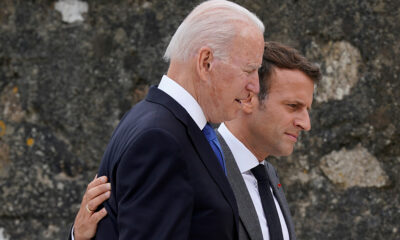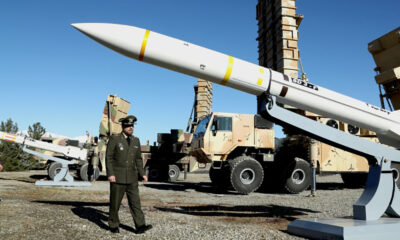Regional
Gulf states must not allow use of airspace against Iran, Iranian official says
The Iranian official said Tehran did not discuss the issue of Gulf Arab oil producers raising output if Iranian production were disrupted during any escalation.
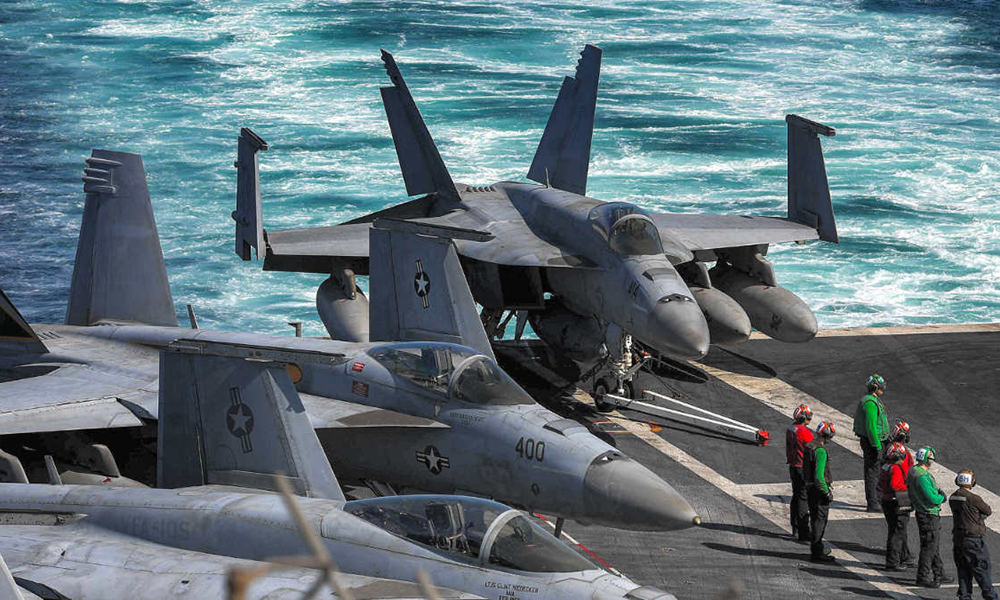
Tehran has told Gulf Arab states it would be “unacceptable” if they allowed use of their airspace or military bases against Iran and warned that any such move would draw a response, a senior Iranian official said.
The official also said any action by Gulf states to balance oil markets should Iranian energy facilities be hit by Israel was not part of the discussions so far, Reuters reported.
The comments come amid growing concern over possible Israeli retaliation for last week’s Iranian missile attack, as Iran’s Foreign Minister Abbas Araqchi visits Saudi Arabia and other Gulf states including Qatar for talks on Wednesday.
They followed discussions between Iran and Gulf Arab capitals last week on the sidelines of an Asia conference in Qatar, when Gulf states sought to reassure Iran of their neutrality in any conflict between Tehran and Israel.
“Iran made it clear that any action by a Persian Gulf country against Tehran, whether through the use of airspace or military bases, will be regarded by Tehran as an action taken by the entire group, and Tehran will respond accordingly,” the senior Iranian official told Reuters.
“The message emphasised the need for regional unity against Israel and the importance of securing stability,” he said.
“It also made clear that any assistance to Israel, such as allowing the use of a regional country’s airspace for actions against Iran, is unacceptable.”
U.S. President Joe Biden is expected to hold a telephone call on Wednesday with Israeli Prime Minister Benjamin Netanyahu that will include discussion of any plans to strike Iran, according to a person familiar with the matter, read the report.
Washington hopes to weigh in on whether the response is appropriate, a separate person briefed on the discussions said. The White House did not respond to a request for comment.
Biden said last Friday he would think about alternatives to striking Iranian oil fields if he were in Israel’s shoes. Last week he also said he would not support Israel striking Iranian nuclear sites.
The Iranian official said Tehran did not discuss the issue of Gulf Arab oil producers raising output if Iranian production were disrupted during any escalation.
U.S. news website Axios, citing Israeli officials, reported last week that Israel could target oil production facilities within Iran as retaliation.
The Organization of Petroleum Exporting Countries, OPEC, which is de-facto led by Saudi Arabia, has enough spare oil capacity to make up any loss of Iranian supply if an Israeli retaliation knocks out some of the country’s facilities, Reuters reported.
Much of OPEC’s spare capacity is in the Middle East Gulf region. Iran has not threatened to attack Gulf oil facilities but has previously warned that if “Israel supporters” intervene directly their interests in the region would be targeted.
Top oil exporter Saudi Arabia has had a political rapprochement with Tehran in recent years, which has helped ease regional tensions, but relations remain difficult.
Saudi Arabia has been wary of an Iranian strike on its oil facilities since a 2019 attack on its key refinery at Abqaiq briefly shut down more than 5% of global oil supply. Iran denied involvement.
A Western diplomat in the Gulf said that during Thursday’s Gulf-Iran meeting in Doha, Iran made clear that Tehran had called for regional unity in the face of an Israeli attack and that it considered neutrality of Gulf states a bare minimum.
The diplomat said Iran had made clear that Tehran would keep a close eye on how each Gulf country responded in the case of an Israeli attack, and also how U.S. bases housed in their countries were used.
Bahrain, Kuwait, Qatar, Saudi Arabia and the United Arab Emirates all host U.S. military facilities or troops.
Regional
Iran ready for indirect talks with US, Khamenei aide says
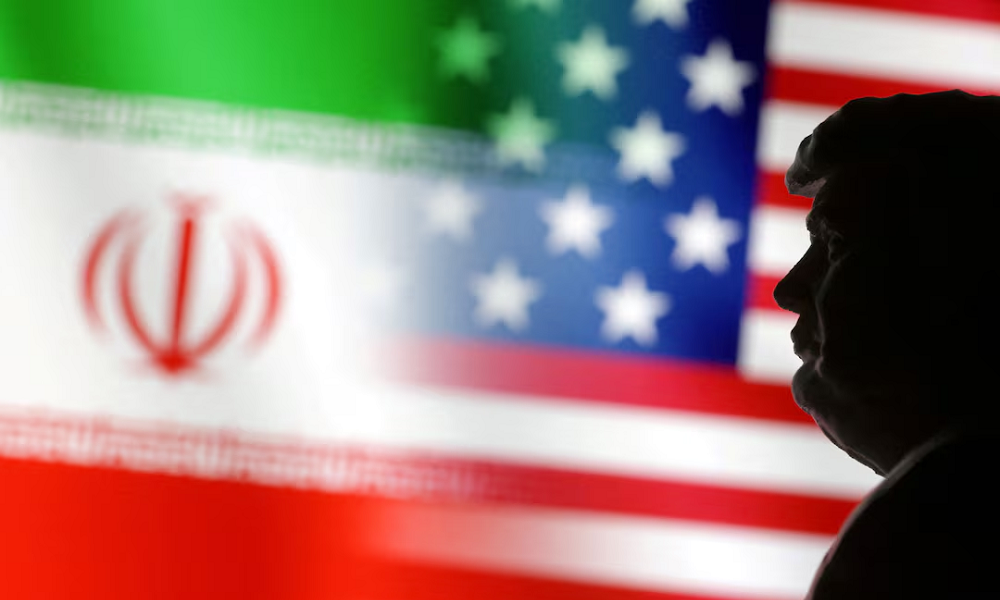
Kamal Kharrazi, an adviser to Iran’s supreme leader, said on Thursday Tehran has not closed all doors to resolve its disputes with the United States and is ready for indirect negotiations with Washington.
Tehran has so far rebuffed U.S. President Donald Trump’s warning it to make a deal or face military consequences. Supreme Leader Ayatollah Ali Khamenei called the message deceptive and Foreign Minister Abbas Araqchi said talks are impossible unless Washington changes its “maximum pressure” policy.
“The Islamic Republic has not closed all doors. It is ready for indirect negotiations with the United States in order to evaluate the other party, state its own conditions and make the appropriate decision,” Kharrazi said, according to the semi-official Iranian Students News Agency.
Iran is meant to soon reply to Trump’s letter, with Araqchi saying last week that Tehran would take into consideration both Trump’s threat and opportunities in its response.
In his first 2017-21 term, Trump withdrew the U.S. from a 2015 deal between Iran and world powers that placed strict limits on Tehran’s disputed nuclear activities in exchange for sanctions relief.
After Trump pulled out in 2018 and reimposed sweeping U.S. sanctions, the Islamic Republic breached and has since far surpassed those limits in its escalating programme of uranium enrichment.
Western powers accuse Iran of having an clandestine agenda to develop nuclear weapons capability by enriching uranium to a high level of fissile purity, above what they say is justifiable for a civilian atomic energy programme.
(Reuters)
Regional
Pakistan, China in talks about security for Chinese nationals
Chinese nationals have been targeted by separatist militants who believe Beijing is helping Pakistan exploit minerals in Balochistan
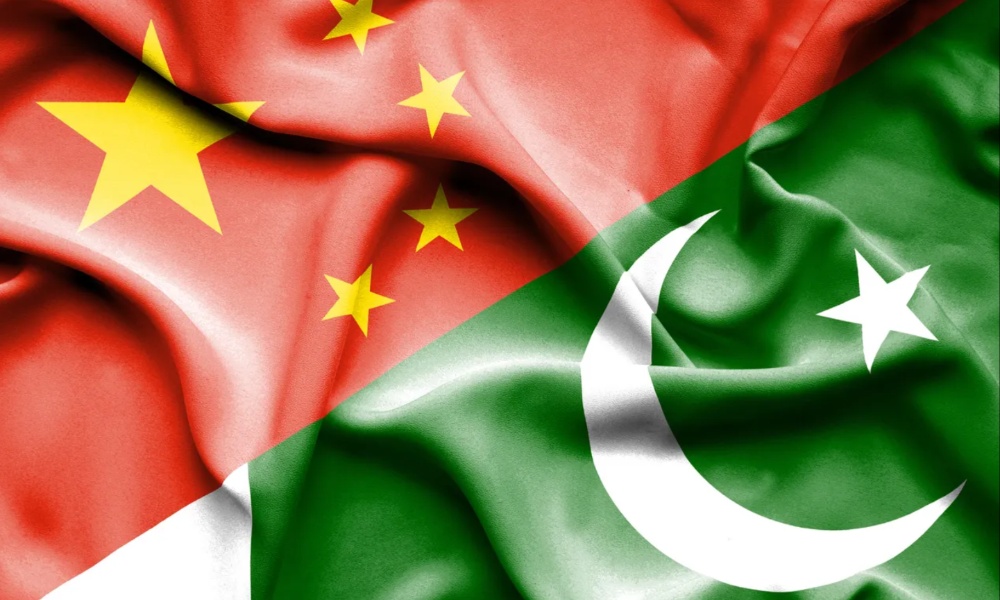
Pakistan and China’s discussions about security measures to protect Chinese nationals working in the South Asian country are a work in progress, Islamabad’s ambassador to Beijing said on Wednesday.
Chinese nationals have been in the crosshairs of separatist militants who believe Beijing is helping Pakistan exploit minerals in the underdeveloped southwestern province of Balochistan, where China has a strategic port and mining interests, Reuters reported.
It is Pakistan’s “national responsibility” and the country is “doing everything possible”, Ambassador Khalil Hashmi told reporters at the sidelines of the Boao Forum in China’s Hainan province.
“I think our two countries work very closely in terms of information sharing, in terms of developing the standard operating procedures” to ensure Chinese nationals working in Pakistan are safe, he said.
“We keep our Chinese friends informed of the steps that we are taking, so it’s a work in progress.”
Beijing has been pushing Pakistan to allow its own security staff to provide protection to thousands of Chinese citizens working there, frustrated by the string of attacks on its citizens.
The push came after a bombing at the Karachi airport last October killed two Chinese engineers who were returning there to work at a power plant.
Hashmi said those talks are ongoing, with a high degree of trust between both countries.
“It’s a complex security environment,” he said, “We have the capability to resolve, to counter and combat and defeat these terrorist forces.”
Regional
Egypt makes new proposal to restore Gaza truce as Israeli strikes kill 65
Palestinian officials on Sunday put the number of dead from nearly 18 months of conflict at over 50,000, read the report.
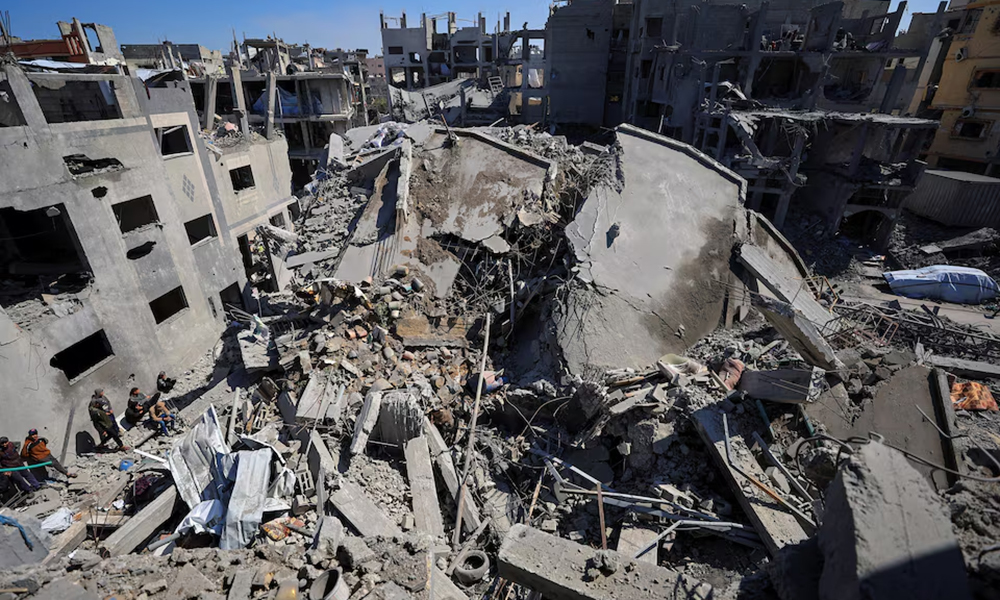
Egypt has floated a new proposal aimed at restoring the Gaza ceasefire deal, security sources told Reuters on Monday, as Palestinian health authorities said Israeli strikes had killed at least 65 people in the enclave in the previous 24 hours, Reuters reported.
The proposal, made last week, follows an escalation in violence after Israel resumed air and ground operations against Hamas militants on March 18, ending a two-month period of relative calm after 15 months of war.
Gaza health officials said Israeli airstrikes and shelling have killed nearly 700 Palestinians since then, including at least 400 women and children.
Among those killed on Monday were two local journalists, Mohammad Mansour and Hussam Shabat, medics said. The Palestinian Journalist Syndicate said at least 206 journalists have been killed by Israeli fire in Gaza since early October 2023, when the conflict erupted. There was no immediate Israeli comment.
Islamist group Hamas said several of its senior political and security officials had also been killed, read the report.
Later on Monday, the Israeli military said it had intercepted a missile launched from Yemen before it crossed into Israel. Warning sirens had sounded in Jerusalem, Tel Aviv and other areas. Iran-aligned Houthi forces in Yemen have at times fired missiles at Israel in support of Hamas fighters.
The Egyptian plan calls for Hamas to release five Israeli hostages each week, with Israel implementing the second phase of the ceasefire after the first week, two security sources said.
Hamas is still holding 59 hostages, with 24 thought to be still alive, among the more than 250 it seized in its October 7, 2023 cross-border attack on Israel. Most of the rest have been freed, or their bodies handed over, in negotiated exchanges.
Both the U.S. and Hamas have agreed to the proposal, the security sources said, but Israel has not yet responded, Reuters reported.
A Hamas official did not confirm the proposed offer, but told Reuters that “several proposals are being discussed with the mediators to bridge the gap and to resume negotiations to reach common ground that would pave the way to start the second phase of the agreement”.
The sources said the Egyptian proposal includes a timeline for a full Israeli military withdrawal from Gaza, backed by U.S. guarantees, in exchange for the release of remaining hostages.
Hamas has accused Israel of breaking the terms of the January ceasefire agreement but has said it is willing to negotiate a renewed truce and was studying proposals from U.S. President Donald Trump’s special envoy, Steve Witkoff.
Israel says it resumed its military operations to force Hamas to release the remaining hostages it is holding in Gaza.
On Monday, Hamas released a video it said showed hostages Elkana Bohbot, 35, and Yosef Haim-Ohana, 24, who were both abducted from the Nova music festival site on October 7.
Israel says it does its best to reduce harm to civilians and has questioned the death toll provided by health authorities in the Hamas-run enclave.
Palestinian officials on Sunday put the number of dead from nearly 18 months of conflict at over 50,000, read the report.
Israel launched its offensive in Gaza after Hamas fighters stormed southern Israel on October 7, 2023, killing 1,200 people, mostly civilians, according to Israeli tallies.
In Gaza’s southernmost city Rafah, the municipality said thousands of people were stuck inside the Tel Al-Sultan district where some Israeli military forces had entered, with families trapped among the ruins, with no water, food, or medicine.
The Palestinian Civil Emergency Service said 50,000 residents remained cornered in Rafah, which abuts the border with Egypt.
The Israeli military said troops had encircled Tel Al-Sultan to dismantle “terror infrastructure sites and eliminate terrorists in the area”.
A United Nations spokesperson said on Monday it would reduce its footprint in Gaza after five staff members of its Palestinian relief agency UNRWA were killed in the renewed conflict, but remains committed to providing aid to civilians.
Separately, UNRWA said 124,000 Palestinians have been displaced in Gaza in recent days.
“Families carry what little they have with no shelter, no safety, and nowhere left to go. The Israeli authorities have cut off all aid. Food is scarce and prices are soaring. This is a humanitarian catastrophe. The siege must end,” UNRWA said on X.
-

 International Sports4 days ago
International Sports4 days agoRCB bring fireworks to opening night of IPL 2025
-

 Latest News4 days ago
Latest News4 days agoTorkham border reopens for pedestrians
-
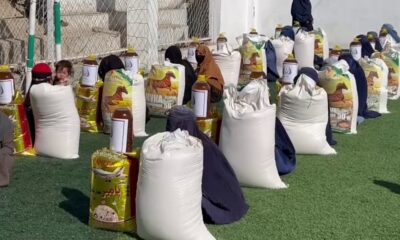
 Latest News4 days ago
Latest News4 days agoBayat Foundation distributes food aid to dozens of needy families in Balkh
-

 International Sports3 days ago
International Sports3 days agoIPL 2025: Sunrisers on a batting rampage; triumph over Rajasthan Royals
-

 Latest News3 days ago
Latest News3 days agoEU says girls’ education crucial for Afghanistan’s long-term prosperity
-
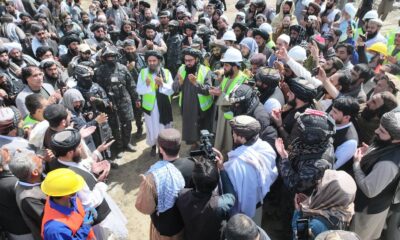
 Business4 days ago
Business4 days agoDeputy PM inaugurates launch of Arghandi Transport Terminal Project in Kabul Province
-

 Sport3 days ago
Sport3 days agoACB names Afghanistan A squad for tri-nation series
-
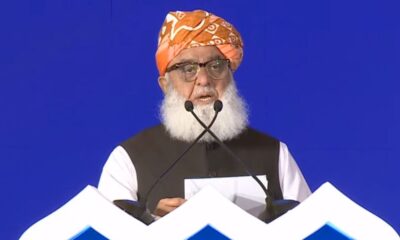
 Latest News4 days ago
Latest News4 days agoPakistan’s mistakes played significant role in rise of terrorism: Maulana Fazl-ur-Rehman










